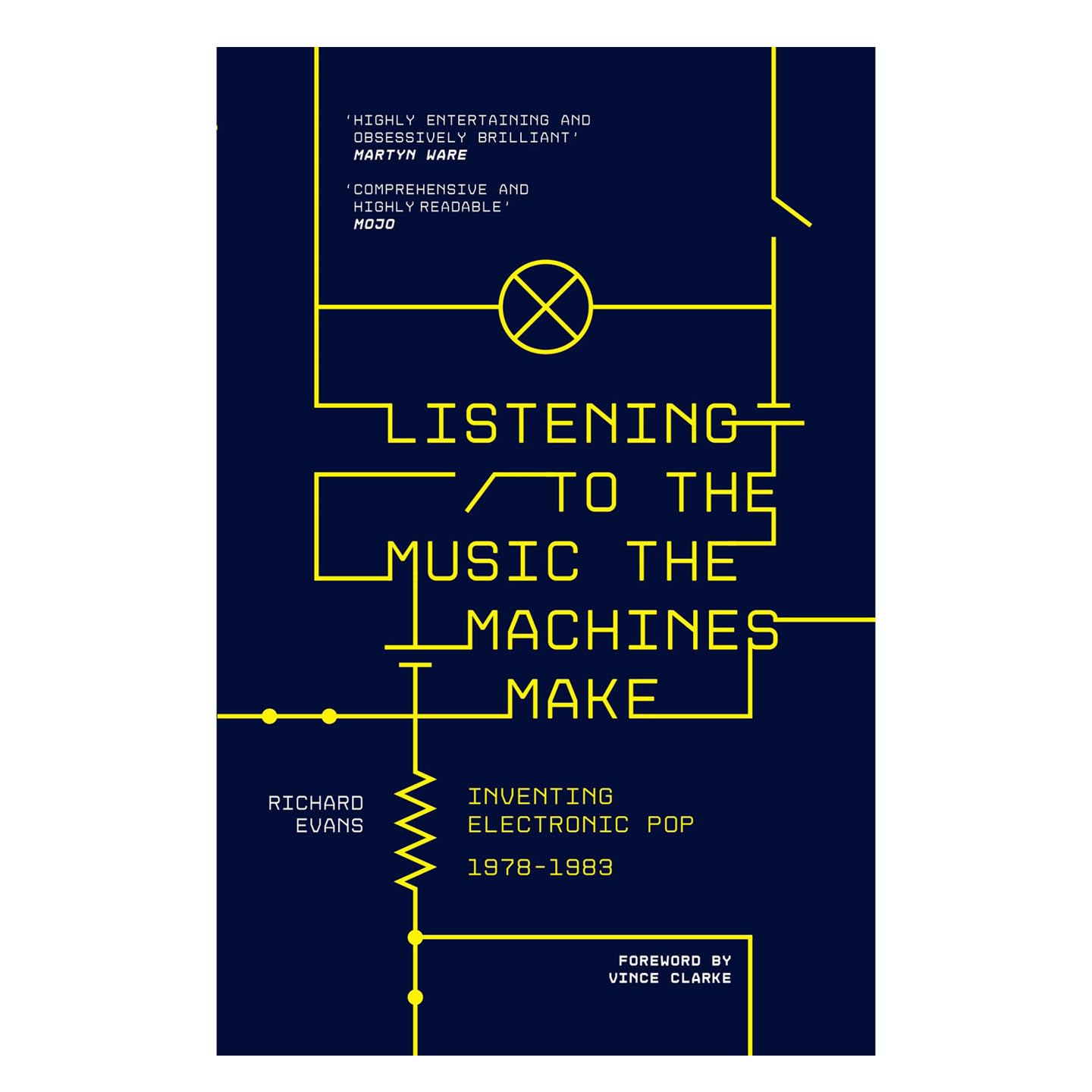Sobre nosotros
Servicios al cliente
Atención al cliente
Acceso Regional
Legales y políticas
Obtén la aplicación

Apunta tu cámara para descargar la aplicación
Copyright © 2024 Desertcart Holdings Limited


Listening to the Music the Machines Make: Inventing Electronic Pop 1978-1983
J**R
received used copy
Dust cover was scratched, dusty, a had a tear, and stains, despite it coming sealed in plastic. There was nothing in the listing that suggested this was going to be a used copy. The book itself is great, in terms of writing, but disappointed Amazon is selling used copies of books as new.
B**T
Excellent detailed description of the rise of popular British electronic scene
Just an excellent read. So enjoyable! I'm cross reading Brian Eno's Diary and just having the best time. Using many sources the author details a month by month evolution of the popular British electronic Music scene starting in 1978.
H**T
Milestone!
absolut milestone in music history books!
D**S
Well researched and highly readable
Richard Evans' book is a well-written and well-researched book on electronic music 1978-1983. Its great strength is that the author has returned again and again to the contemporary music papers to try and understand how the music was received at the time. This is also the book's weakness in that it does not allow a qualitative judgement and perspective on the music to emerge from studying its longer-term reception. Nevertheless, what a great achievement.As someone who devoured Sounds, NME, and Melody Maker at the time I was surprised to see in retrospect how mean-spirited and needlessly petty many of the reviewers on these papers were when dealing with electronic groups. Of course there were exceptions, and Paul Morley and Jon Savage in particular come across now, as I found then, as both eager and erudite, and usually generous in their praise or constructive in their criticism. I did not read Record Mirror at the time, so I now discover from the book that I would have found the writing of Sunie there equally engaging and stimulating had I been aware of it.The study concentrates on the big names in electronic music at the time which sadly allows more shadowy figures like Robert Rental, Thomas Leer, and Fad Gadget to slip out of the picture prematurely, though all are at least mentioned however. Soft Cell's 'Mutant Moments' EP hopefully will be considered in any future edition and I hope space might be found for the likes of Nigel Simpkins ('X.ENC.'), the Tea Set '(Parry Thomas'), and Orior (Elevation'), all of whom produced one-off gems in this era.
A**E
Well-Researched!
I love reading books about more recent music history, and I think I've been spoiled lately with some very well-written band bios and label histories."Listening to the Music Machines Make" is unique in its comprehensive narrative about the origins of electronic music and some of the adjacent genres. I haven't finished it yet (I'm about halfway through), but it seems that each chapter introduces a handful of new (relative to the book, not contemporary) artists into the story.The book is very well researched, Vince Clarke wrote the intro, there's something about every originating artist, venues, labels, and some shows are referenced - the whole thing belongs on the shelf of any serious student of the best music ever created.What negatives do I have about it? Only two stand out. First, as I mentioned at the beginning, I've been spoiled by some great books lately. By comparison (and VERY likely because a couple of those others were so beautifully written that my expectations shifted), this book is a little dry. It's packed full of facts and follows the timeline; definitely gives insight and context ... it's just a little more like most nonfiction I read, so I may enjoy it but someone looking for a novel to read on holiday might not appreciate it as well.Secondly (and keep in mind I haven't finished reading it yet), the book seems to only cover a few years at the beginning of the movement (1978-1983). These are certainly significant years, and it does appear the author intends to continue the series, but for right now that's all we get.I'm impatient. I want more right now.
Trustpilot
Hace 2 meses
Hace 1 semana